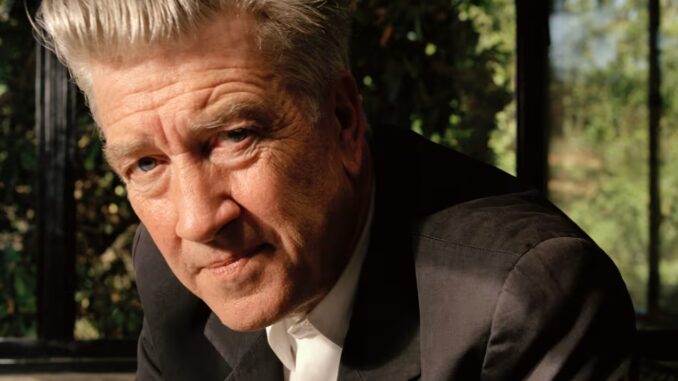
David Lynch isn’t just a director; he’s a genre. His iconic series, Twin Peaks, revolutionized television in the early ’90s with its surreal storytelling and unforgettable characters. But did you know it laid the groundwork for modern prestige dramas like The Sopranos and Mad Men? Let’s dive into the fascinating web of connections.
How ‘Twin Peaks’ Redefined Television
Breaking the Mold of Conventional TV
Before Twin Peaks, television stuck to predictable plots and clear resolutions. Lynch flipped the script, delivering a dreamlike mystery that left audiences guessing. It wasn’t just a show; it was an experience.
Blending Genres with Ease
Who says you can’t mix soap opera drama with supernatural horror? Lynch’s seamless blending of genres paved the way for the complexity seen in The Sopranos and Mad Men.
The Lynchian Influence on ‘The Sopranos’
Complex Characters with Moral Ambiguity
Tony Soprano might not have existed without Lynch’s nuanced approach to character development. Like Twin Peaks’ Agent Cooper, Tony is deeply flawed, yet undeniably compelling.
Dream Sequences and Symbolism
Remember Tony’s cryptic dreams? Those surreal sequences echo Lynch’s trademark use of dreams to explore subconscious themes.
Dark Humor and Absurdity
The Sopranos thrived on its ability to balance gritty crime drama with unexpected humor, a skill Lynch mastered in Twin Peaks.
How ‘Twin Peaks’ Set the Stage for ‘Mad Men’
Mood and Atmosphere as Characters
Lynch’s meticulous attention to mood and setting inspired Mad Men’s immersive world-building. Every cigarette puff and office glance feels intentional, much like Twin Peaks’ haunting landscapes.
Exploring Human Duality
Don Draper is the epitome of duality, a theme central to Lynch’s work. Both Twin Peaks and Mad Men delve into the masks people wear and the secrets they hide.
Music as a Narrative Tool
Angelo Badalamenti’s haunting score in Twin Peaks transformed how music shapes a story. Mad Men borrowed this playbook, using period-appropriate tunes to underscore its emotional beats.
Lynch’s Legacy in Storytelling
Risk-Taking in Plot Development
Lynch taught creators to take risks, whether it’s a quirky subplot or a shocking character death. Both The Sopranos and Mad Men thrive on unpredictability.
Redefining the Antihero
Before Walter White and Don Draper, Lynch gave us morally complex leads who felt real, laying the groundwork for the antiheroes we root for today.
Why Lynch’s Influence Matters Today
The Rise of Prestige TV
Lynch’s innovative storytelling inspired the rise of “prestige TV,” where shows are viewed as art rather than mere entertainment.
Pioneering Cinematic Television
From its cinematography to its unconventional pacing, Twin Peaks blurred the lines between TV and film, setting a new standard for visual storytelling.
Cultivating Fan Theories and Engagement
Lynch proved that ambiguity isn’t a flaw—it’s a feature. The endless fan theories surrounding Twin Peaks mirror the discussions sparked by The Sopranos and Mad Men.
Conclusion: A Legacy That Lives On
David Lynch’s Twin Peaks didn’t just entertain—it transformed television forever. Its bold, genre-defying storytelling became the blueprint for the modern TV classics we love today. Without Lynch, we might never have seen Tony Soprano in therapy or Don Draper gazing out a window, contemplating life.
FAQs
1. What makes David Lynch’s style unique?
His use of surrealism, dream sequences, and symbolism sets him apart, creating a deeply immersive experience.
2. How did ‘Twin Peaks’ influence ‘The Sopranos’?
Through its complex characters, surreal dream sequences, and dark humor, Twin Peaks inspired many elements of The Sopranos’ storytelling.
3. Is ‘Mad Men’ directly inspired by ‘Twin Peaks’?
Not directly, but Lynch’s influence on atmosphere, character duality, and music is evident in Mad Men.
4. Why is ‘Twin Peaks’ considered revolutionary?
It broke away from traditional TV norms, blending genres, and introducing cinematic storytelling techniques.
5. Can I watch ‘The Sopranos’ or ‘Mad Men’ without seeing ‘Twin Peaks’?
Absolutely! But understanding Twin Peaks offers a richer appreciation of the themes and innovations in both shows.
Now you know why David Lynch’s work is the cornerstone of modern TV storytelling.